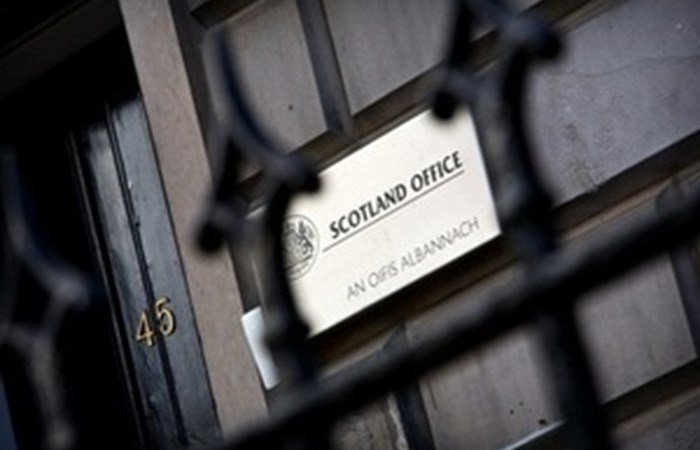Scotland Office

The UK governments referendum consultation has produced overwhelming support for the Scottish people being asked a single, clear question on whether Scotland should become independent.
A broad coalition of members of the public, businesses and academics formed part of a 75 per cent response in favour of a single question. The UK and Scottish Governments and all main political parties have already expressed a preference for a single question referendum.
Scottish Secretary Michael Moore said: If all the political parties and the vast majority of respondents to our consultation agree that they would prefer a single question referendum then we must be able to agree that it will be a single question referendum.
The UK Government today published a 26 page document summarising the 2857 responses to the consultation and setting out the level of support for the Governments proposals on how to facilitate a legal, fair and decisive referendum.
The consultation responses revealed strong support for the following:
-
63% of those who support giving the Scottish Parliament the power to legislate for a referendum support the use of a Section 30 order.
-
70% of respondents agreed with the UK Government that the referendum should take place sooner rather than later, including a large number of businesses based in Scotland:
-
75% of respondents agreed with the UK Government that there should be a single question on Scotlands constitutional status.
- 86% of respondents to this section of the consultation paper agreed with the UK Government that the Electoral Commission should have a role in overseeing an independence referendum.
-
71% of respondents expressed the view that those resident in Scotland should be entitled to vote in a referendum. This shows a clear majority in support of the UK Governments preference that the devolved legislature and local government franchise would be most suitable
- people gave reasons both of principle and practice for supporting a single question referendum:
Principle
Independence and devolution are separate issues and should not be confused.
The Scottish Government was elected on a manifesto commitment to hold a referendum on independence.
Practice
There is no agreement on what a second referendum question would be about.
There would be an unclear and disputed outcome if a 2nd question received more support than independence but independence was pronounced the winner.
Todays report also sets out the UK Governments own response to the consultation and explains how the Government plans to proceed in light of the findings of the consultation.
Scottish Secretary Michael Moore said:
I am grateful for the level and quality of the responses we have received to our consultation on the referendum. I am also pleased that the proposals I set out in January to deliver a legal, fair and decisive referendum have been strongly endorsed. Putting the independence referendum on a sound legal footing was at the heart our proposals and there is strong support in the consultation for the UK and Scottish Governments agreeing an order to provide Holyrood with the legal power to hold the referendum.
The consultation has also produced a resounding endorsement for the referendum having a single, clear question on independence. The reasons given are compelling. The Scottish Government was elected on a manifesto commitment to hold an independence referendum. It is not at all clear what a second question would be about. There must be a clear and decisive outcome to this referendum and a multi-option referendum will confuse matters.
The quality of the argument is also backed up by quantity. The individuals and organisations who are supporting this option have added their voice to the many already supporting a single question. We are now in the position where a single, clear question is the preference of the UK Government, the Scottish Government, the main political parties in Scotland and three-quarters of those responding to the consultation.
If all the political parties and the vast majority of respondents to our consultation agree that they would prefer a single question referendum then we must be able to agree that it will be a single question referendum.
There is very strong support in Scotland for getting on with this referendum sooner rather than later. In particular, it is clear that business feel the uncertainty is damaging and this is something we cannot ignore.
It is important that the two governments can reach agreement on these matters so that we can move on to the real debate about whether Scotlands future should be as part of the United Kingdom or as a separate country outside of the UK.
